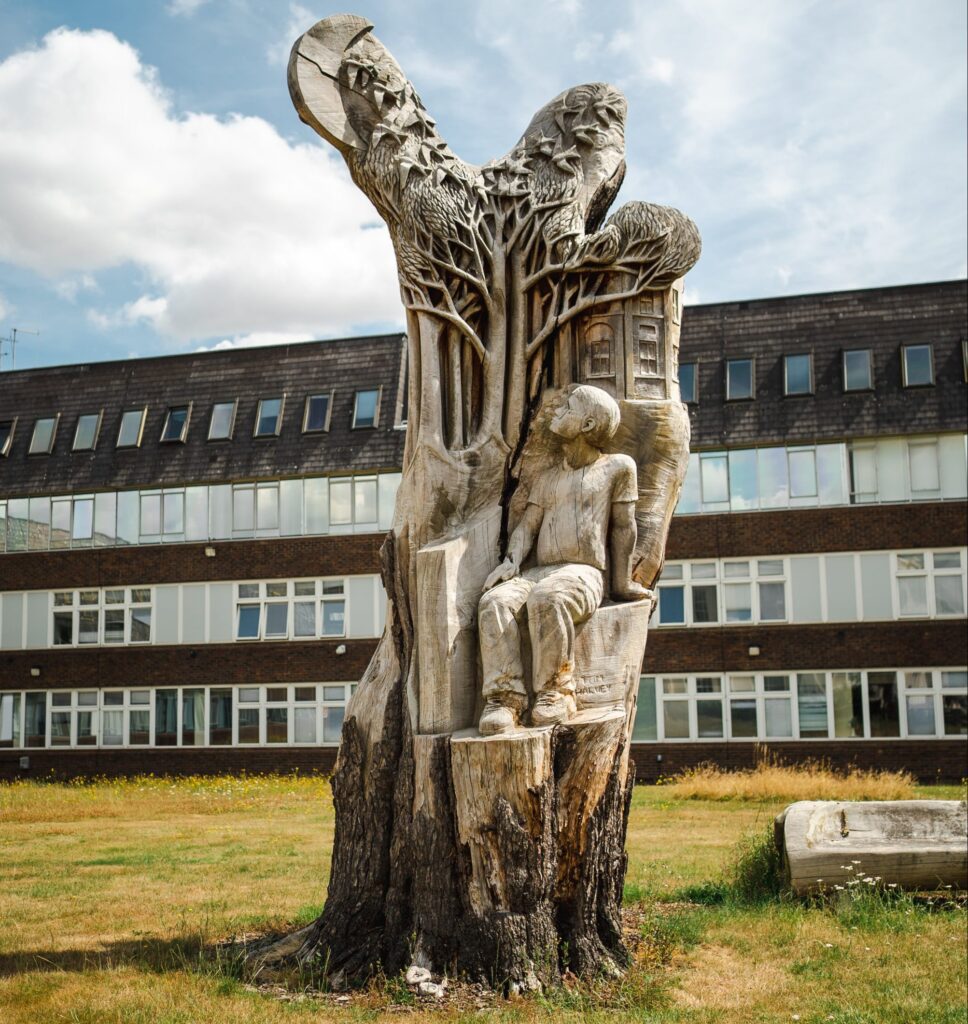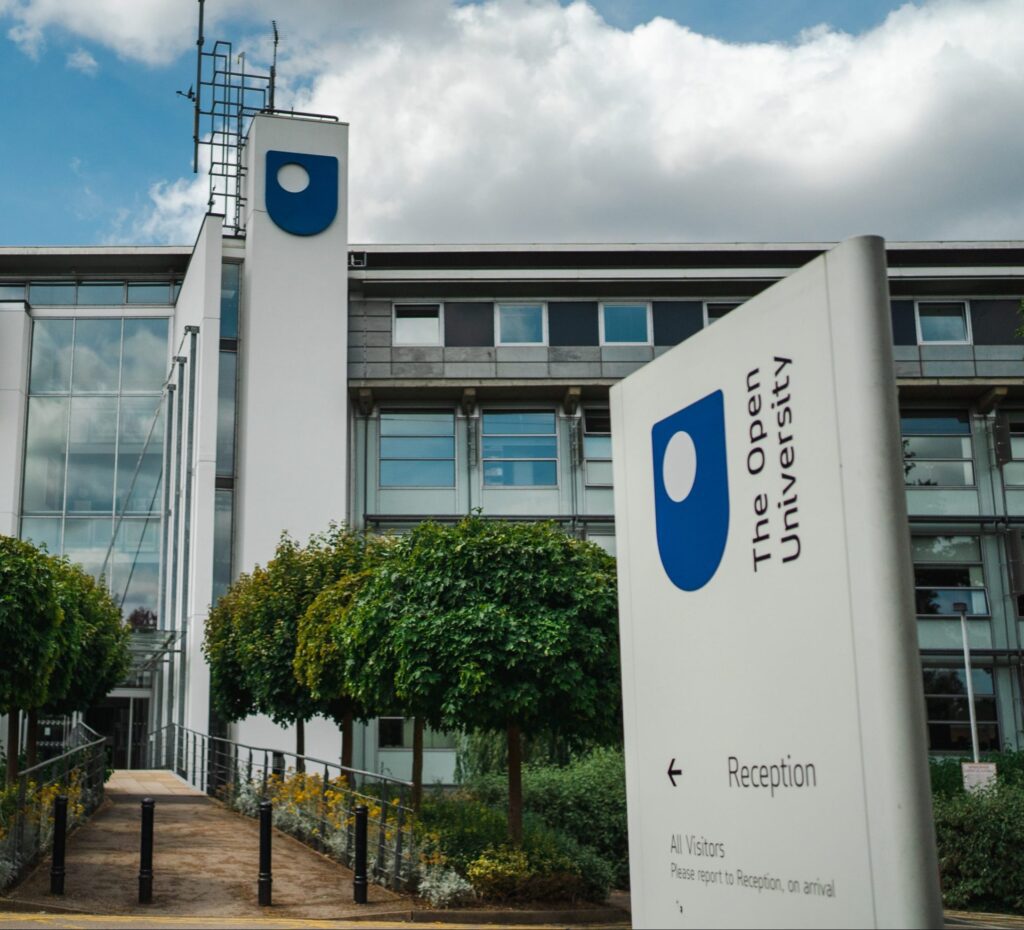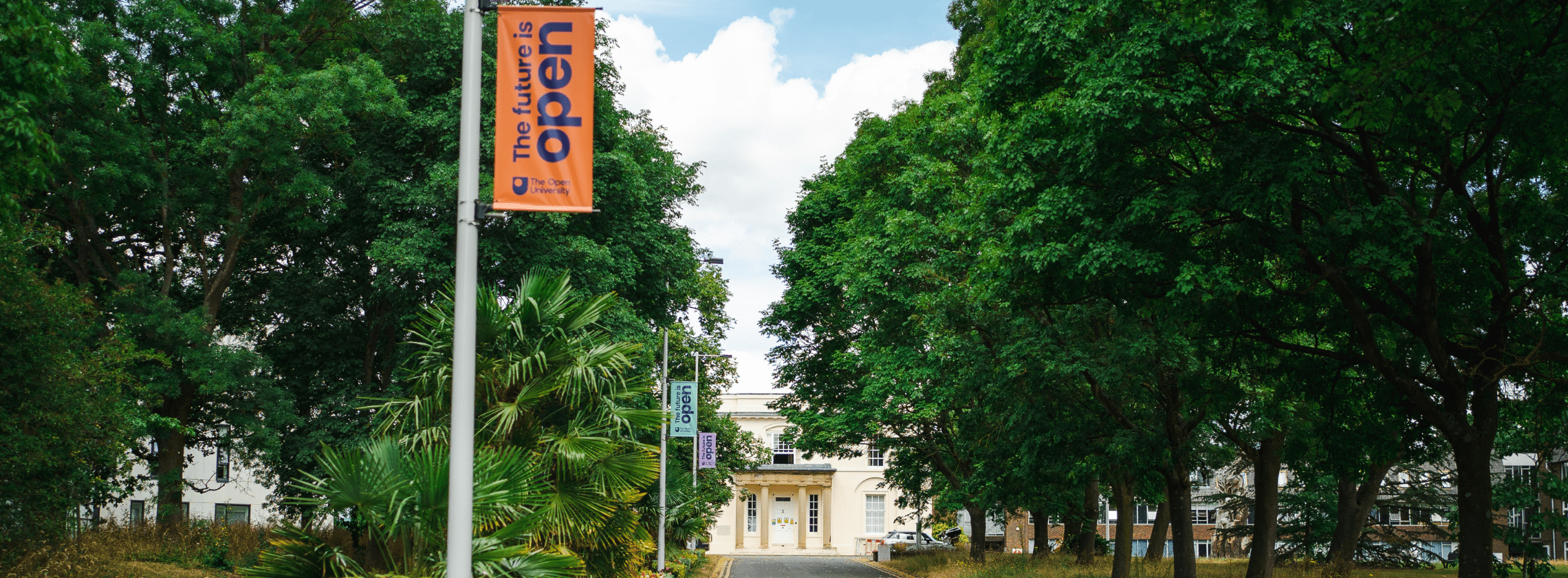For over 50 years, The Open University has been at the forefront of distance learning technology, and over that time it has helped over two million students realise their ambitions. For the last 10 years, the organisation has been a headline sponsor for the Milton Keynes Business Achievement awards, helping to celebrate the business community’s success stories.
With the theme this year focusing on technology, Phil Kenmore, Director of Corporate Development and Partnerships, shares his thoughts on how the organisation has embraced technology both in the past and will continue to do so into the future…
The Open University has been a long-time supporter of the Milton Keynes Business Achievement Awards, as a Headline Sponsor, what benefits does the organisation see?
 People might not be aware that The Open University works across the country with over 2,800 businesses in one capacity or another, and that can be all types of business from FTSE 100 companies through to NHS Trusts, local authorities, charities and many more – and about 80 of those employers are based in Milton Keynes, so we have leaners throughout the local business community. We’re also one of the major employers within the city, so it’s really important for us to celebrate those relationships by sponsoring the awards. We’ve been a sponsor since the awards started 10 years ago, so it’s clearly very important for us to continue to support the city’s business community.
People might not be aware that The Open University works across the country with over 2,800 businesses in one capacity or another, and that can be all types of business from FTSE 100 companies through to NHS Trusts, local authorities, charities and many more – and about 80 of those employers are based in Milton Keynes, so we have leaners throughout the local business community. We’re also one of the major employers within the city, so it’s really important for us to celebrate those relationships by sponsoring the awards. We’ve been a sponsor since the awards started 10 years ago, so it’s clearly very important for us to continue to support the city’s business community.
This year’s theme for MKBAA is ‘Forever Innovative – Milton Keynes Leading the UK’s High-tech Future’ – how does this resonate with The Open University?
The idea of innovation across technology is massively important. The Open University has been, from its birth, a driver of innovation. We were the ‘university of the air’ at the beginning and have moved on substantially since then, to the mainly online digital offer our students now access. We’re constantly developing new methods of education, particularly for people across all walks of society, so the fact that the awards are focusing on innovation, and particularly the high-tech future, is important to us as we’re very aware of the requirement for digital skills, tech skills and green skills within the workforce of the future.
Giving anyone the ability to study from anywhere in the world is a founding principal of The Open University, how has technology developed over the years to allow the organisation to meet that objective?
We’ve constantly tried to innovate within the teaching realm and one of our recent reports highlighted the areas of AI and the metaverse for future scope within education. One of our innovations, Open Stem Labs, has recently won a Queen’s Anniversary Prize. These labs allow students to conduct scientific experiments online from home, in a simulated environment. This shows just one of the ways we’re developing technology to enhance the educational experience.
We’ve also won a grant from the government to build a new augmented-reality lab where you will have cameras around the entire room, with students able to control and take part of activities in real time, which is a whole new blending of education and VR applications. With all these innovations the aim is still to allow students from all over the world to study a wide range of subjects from business leadership to nursing using this new technology.
Milton Keynes has an ambition to become the UK’s Silicon Valley but attracting top talent is key, how can The Open University help with upskilling our existing workforce and train the next generation?
 There are two major ways in which The Open University is involved. We’re already heavily embedded with local businesses, helping to find opportunities to develop their existing talent, and this is particularly true for employees without educational opportunities in their past. We don’t have any barriers for most courses, so we don’t exclude people from studying higher education or degree apprenticeships, for example, opening up a wealth of potential talent.
There are two major ways in which The Open University is involved. We’re already heavily embedded with local businesses, helping to find opportunities to develop their existing talent, and this is particularly true for employees without educational opportunities in their past. We don’t have any barriers for most courses, so we don’t exclude people from studying higher education or degree apprenticeships, for example, opening up a wealth of potential talent.
Also, as a major employer we have a huge pool of talent and OU employees get access to free educational courses, giving them the chance to develop and grow their own skill base. And as a university we also have a large academic community, who all have significant experience and expertise that can be utilised by local organisations. For example, our academic experts worked with medical leaders at Milton Keynes University Hospital on a device to track and manage patient pain levels.
The breadth and depth of the courses available through The Open University are second to none. For the technology sector they cover everything from electrical engineering through to cyber security. Due to the progression of technology, how do you envisage this course offering evolving in the future?
Definitely in the realm of AI and digital tech, but another stream that we believe will become even more important is managing and utilising data. We believe there is a huge amount of work that can be done around that sector. Another area in which we are exploring curriculum development is green skills, some of the possibilities around sustainability and climate change in the future could be a strong area for the university to help Milton Keynes lead on.
The AI Safety Summit, recently held at Bletchley Park, underpins the progression of AI and its growing impact. The OU revolutionised education at a distance with technology playing a crucial role. How important a role will AI play in the delivery of education in the future?
A lot has been spoken about the potential threat of AI in the media not just in education but also more generally, but we’re seeing AI as an opportunity in education delivery. It can certainly help in curriculum development; generative AI could really benefit that area in terms of the speed of delivery. But more generally, other educational establishments have talked about the issues of plagiarism but we’re looking to help educators learn how to have students use AI but reference it, like you’d reference any other sources, and for it then to be assessed as part of any piece of work.
What are you looking forward to most about the awards this year?
We’re look forward to seeing the full range of businesses we have in Milton Keynes and celebrating their achievements across the year. Last year, we were really interested in the sheer diversity of winners, from microbusinesses to charities and we are looking forward to seeing what they’ve been working on in 2023.

Entries for MKBAA 2024 are now closed.
Tables sales for the awards ceremony on March 21 are still open at www.mkbaa.co.uk. There are also a limited number of sponsorship opportunities available, email sponsorship@mkbaa.co.uk for details.













